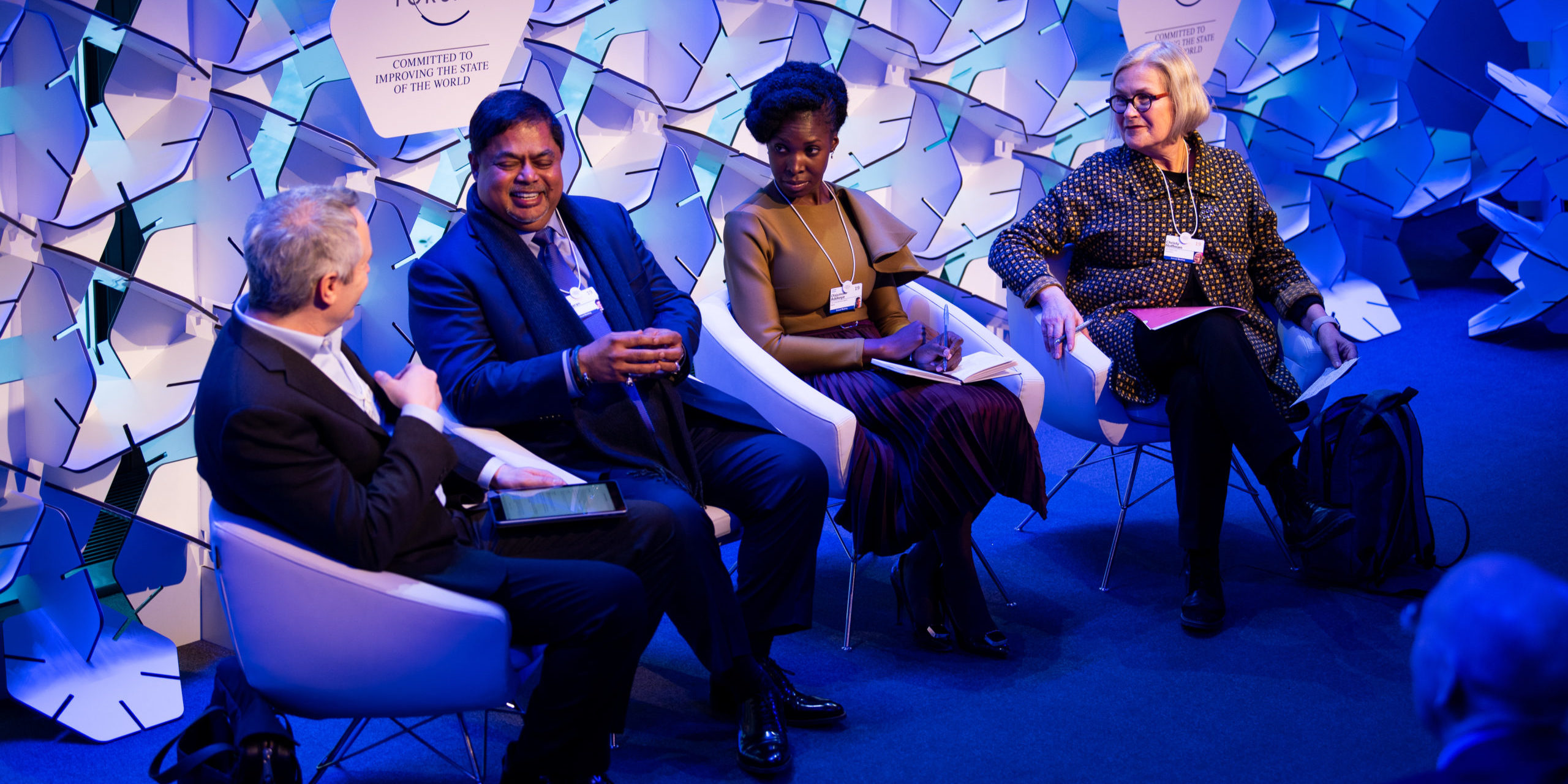Vijay Eswaran has been a mainstay at the World Economic Forum (WEF) events since 2010. This year at the WEF’s annual meeting in Davos, he was a panelist at a session on “The Demographics of the Gig Workforce”. The panel discussion was moderated by Brad Stone, Senior Technology Editor for Bloomberg News and included Olajumoke Adekeye, Founder of The Young Business Agency and Christy Hoffman, General Secretary of UNI Global.
The gig economy has expanded globally to an estimated 48 million workers and more are expected to come on board in the emerging markets. Vijay, in his remarks pointed out that the gig economy is not a new phenomenon. It has been around for close to a century.
The concept of this type of work goes back to the late 1800s with pioneering companies such as Avon, followed by Tupperware in 1925, Amway in 1950 and Encyclopedia Britannica which goes even further back.
These companies embodied the concept of being your own boss and having flexible hours through direct selling, long before the Internet of Things.
Please read on below for a summary of Vijay Eswaran’s comments.
The gig economy as we know it today is still in the process of being defined. It could be defined as freelancing, transient or working within jobs as opposed to working a 9 to 5 job. In our company, we have empowered millions of people to take charge of their own lives without having to work within a structured 9 to 5 environment. Of the close to 18 million people across emerging markets in our database, at least 10% are active members going all out to sell the hundreds of products that we offer. They buy and sell and are out there working full time on their own businesses. This is the essence of the gig economy.
Millennials fit brilliantly into the gig economy. Most of them do not want a 9 to 5 existence; they want to be in charge of their own lives. They want to experience things, travel and explore, and be able to earn an income in between those experiences. This allows them to maintain their independence. If you’ve noticed, when we were growing up, buying a house or a car was the big dream. Those goals are not of much value to this group of people. With this changing demographic, the future of work has changed. Many millennials are no longer interested in or sold on the concept of secure, permanent employment.
By 2025, 75% of the work force will be made up of millennials, and more than half of today’s jobs as we know them will become obsolete with advancements in AI and automation. If everyone sets aside their differences, and wars, or challenges of every kind, there still aren’t enough jobs to provide employment to everyone. It is a human right to be able to go out and do what we wish to do. And the gig economy fits perfectly into this changing employment landscape.
Technology is shaping the way forward. Gen Z started off on iPads before they could speak in full sentences. Their view of the world with access to instant information is shaped differently. It has created a whole new generation of people who are thinking very differently. It is interesting to observe their behaviour pattern. Marketers have to reassess how we market to them. The introduction of 5G very soon will revolutionise the way we interact with technology, and that will have an impact on the way we work. When Qi wanted to enter the Indonesian market 15 years ago, the government said that we need internet and that internet accessibility is less than 1% of their 260 million people. Within that year, FB had the fastest growth across the planet in Indonesia – 60 million based on mobile apps.
Uber may have helped create today’s gig economy, but you don’t need a car to be a part of it. A smartphone and a motorbike or bicycle can help you participate in the new gig economy. In Indonesia, the fastest growing ride hailing company is Go-Jek which has already caught up with Grab, which annihilated Uber in South Asia and Go-Jek’s business model is based on motorcycles instead of cars to fit into the Indonesian transport culture.
The employment ecosystem is rapidly changing. The universities of today are ill-equipped to cater to the fast-changing mindset and evolving landscape. If you go back 50 years, universities defined the career path for most people. Getting a degree from Harvard, Stanford, Yale or Princeton defined your entry point. Not anymore. Employers of today are looking for a certain type of skill set, and universities are unable to deliver. Our universities were designed in the 19thcentury, staffed by people from the 20thcentury, trying to create a workforce for the 21stcentury.
Many governments risk losing the upsides of the gig economy when they try to limit its scope. For example, over regulating services like Uber and Airbnb and forcing them to fit into a traditional set up deprives consumers of the flexibility and choice that come with such options. If you start treating gigs such as those offered by Uber like permanent employment, you risk losing the upsides. In my opinion, some governments do not fully grasp what is at stake and are still catching up to the reality of innovations in modern life.









